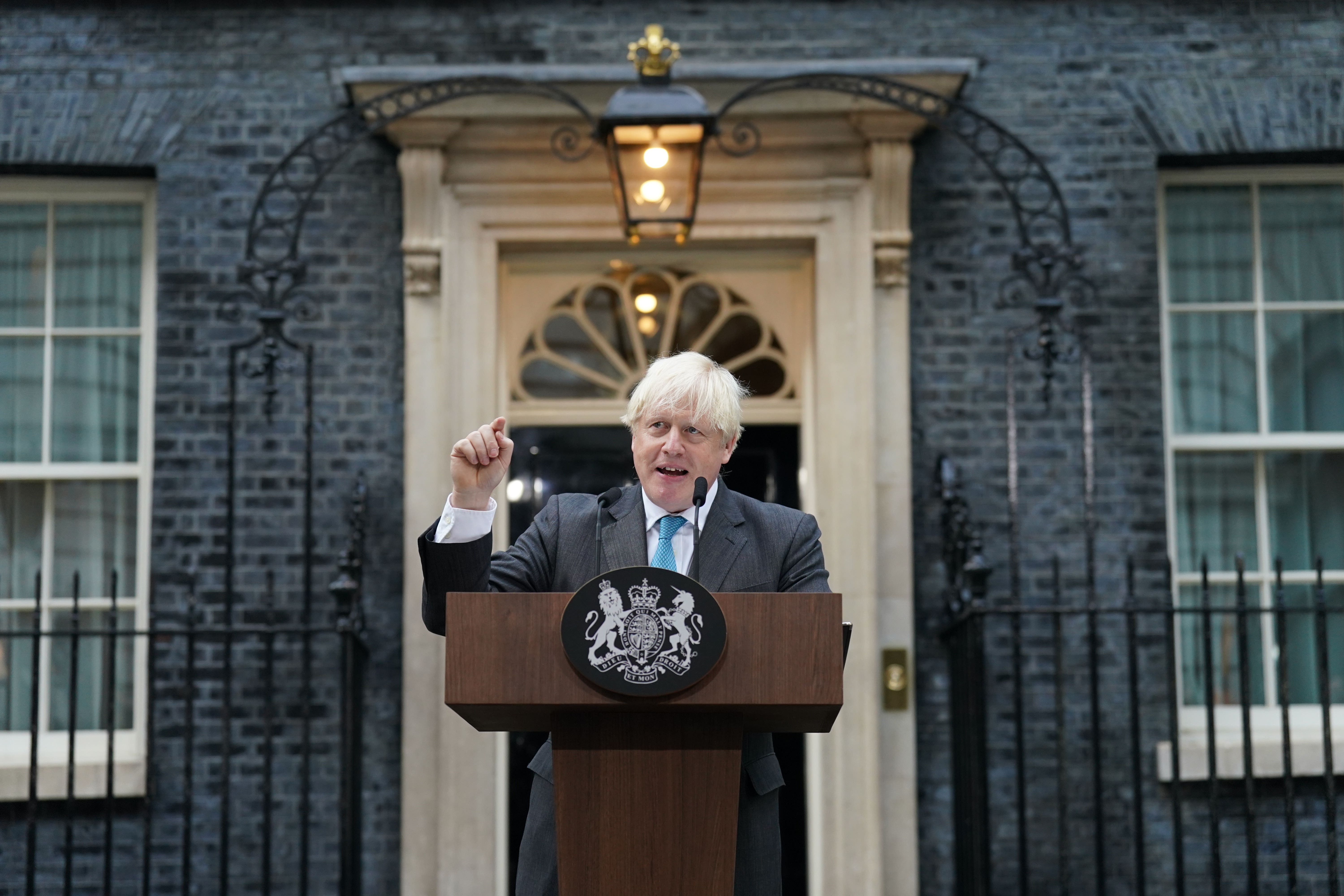Special advisers got £2.9m in severance payments amid political upheaval
Ministers were also paid more than £400,000 in severance packages.

Your support helps us to tell the story
From reproductive rights to climate change to Big Tech, The Independent is on the ground when the story is developing. Whether it's investigating the financials of Elon Musk's pro-Trump PAC or producing our latest documentary, 'The A Word', which shines a light on the American women fighting for reproductive rights, we know how important it is to parse out the facts from the messaging.
At such a critical moment in US history, we need reporters on the ground. Your donation allows us to keep sending journalists to speak to both sides of the story.
The Independent is trusted by Americans across the entire political spectrum. And unlike many other quality news outlets, we choose not to lock Americans out of our reporting and analysis with paywalls. We believe quality journalism should be available to everyone, paid for by those who can afford it.
Your support makes all the difference.Severance payments to ministers’ special advisers reached nearly £3 million over the last year amid political upheaval in Westminster, with ministers also paid more than £400,000 after job exits.
The last year saw a raft of resignations and sackings, with the turmoil creating a significant bill for the Government in severance payments to special advisers, or spads in Whitehall lingo.
An annual report on special advisers, published on Thursday ahead of summer recess, detailed £2.9 million in severance as part of a total pay bill of £15.9 million between April 2022 and March 2023.
A special adviser’s appointment automatically ends alongside a minister when they resign or are sacked.
Figures released by Government departments also showed a total of £455,392 was paid out to former ministers, some of whom rejoined government just months later.
Former prime ministers Boris Johnson and Liz Truss both received £18,660 after resigning, while Kwasi Kwarteng was given £16,876 when he quit as chancellor after less than six weeks in the job.
Among the other ministers to receive severance payments was Chris Pincher, who resigned as deputy chief whip over allegations he groped two men in the Carlton Club, precipitating the crisis that saw Mr Johnson leave office.
Mr Pincher received a £7,920 severance payment after stepping down at the end of June 2022.
The Commons Standards Committee recommended earlier in July that Mr Pincher be suspended from the House for eight weeks, after upholding the allegations and finding he had damaged the reputation of the Commons.
At a time when families up and down our country are desperately struggling to make ends meet, it will make people sick to hear that almost £3 million has been spent on severance payouts for the advisers who have been helping to cause this mess
Thursday is the last day for Mr Pincher, who remains MP for Tamworth, to lodge an appeal against the committee’s findings, but the summer recess means even if he does not appeal, MPs will not be able to approve his suspension until September.
Both Labour and the Liberal Democrats have criticised the decision of numerous former ministers to accept the severance payments, with shadow attorney general Emily Thornberry calling the payouts to advisers “wages of chaos”.
“Just like the mortgage bombshell and the crisis in our NHS, it is ordinary people who are having to pay the price for this permanent shambles of a government,” the Labour MP said.
“At a time when families up and down our country are desperately struggling to make ends meet, it will make people sick to hear that almost £3 million has been spent on severance payouts for the advisers who have been helping to cause this mess, many of whom were only in post for a few weeks, and others who put their feet up for a few months before returning to new jobs under Rishi Sunak.”
Ministers are entitled to receive severance payments worth a quarter of their ministerial salary on leaving office, provided they are aged under 65 and are not reappointed within three weeks.
But some ministers who received severance payments last year returned to government within months.
They include Grant Shapps, who received £16,876 when Ms Truss replaced him as transport secretary at the beginning of September 2022, but returned as home secretary a month later.
He is reported to have given half of his payment to charity.
Michael Gove also received £16,876 when he was sacked by Mr Johnson as levelling-up secretary, a role he has returned to under Rishi Sunak.
Both his successors – caretaker Greg Clark and Truss appointee Sir Simon Clarke – also received £16,876 on leaving the department.
Ministers can choose not to take a severance payment, while some returned their payments when they were reappointed.
Mr Sunak, for example, repaid the £16,876 he received when he quit as chancellor.
The payments have been disclosed by the publication of Government departments’ annual reports, most of which have been released on Thursday.
The Treasury’s report shows that, alongside the payments made to ministers, the controversial sacking of top civil servant Sir Tom Scholar cost the taxpayer £457,000 in severance and other payments.
Sir Tom was dismissed as the Treasury’s permanent secretary in September 2022, just as Mr Kwarteng took over as chancellor.
The move was criticised at the time, given Sir Tom’s long experience at the department, and economists and former civil servants have subsequently said his dismissal contributed to the market’s negative reaction to Mr Kwarteng’s mini-budget.
The Treasury’s annual accounts, published on Thursday, show that Sir Tom received a £335,000 severance payment on his dismissal as permanent secretary, along with £122,000 in annual leave adjustments, payments in lieu of notice and other payments.
The Prime Minister’s official spokesman said: “Obviously, there are laws that need to be followed at all times when coming up with agreements on severance pay.”